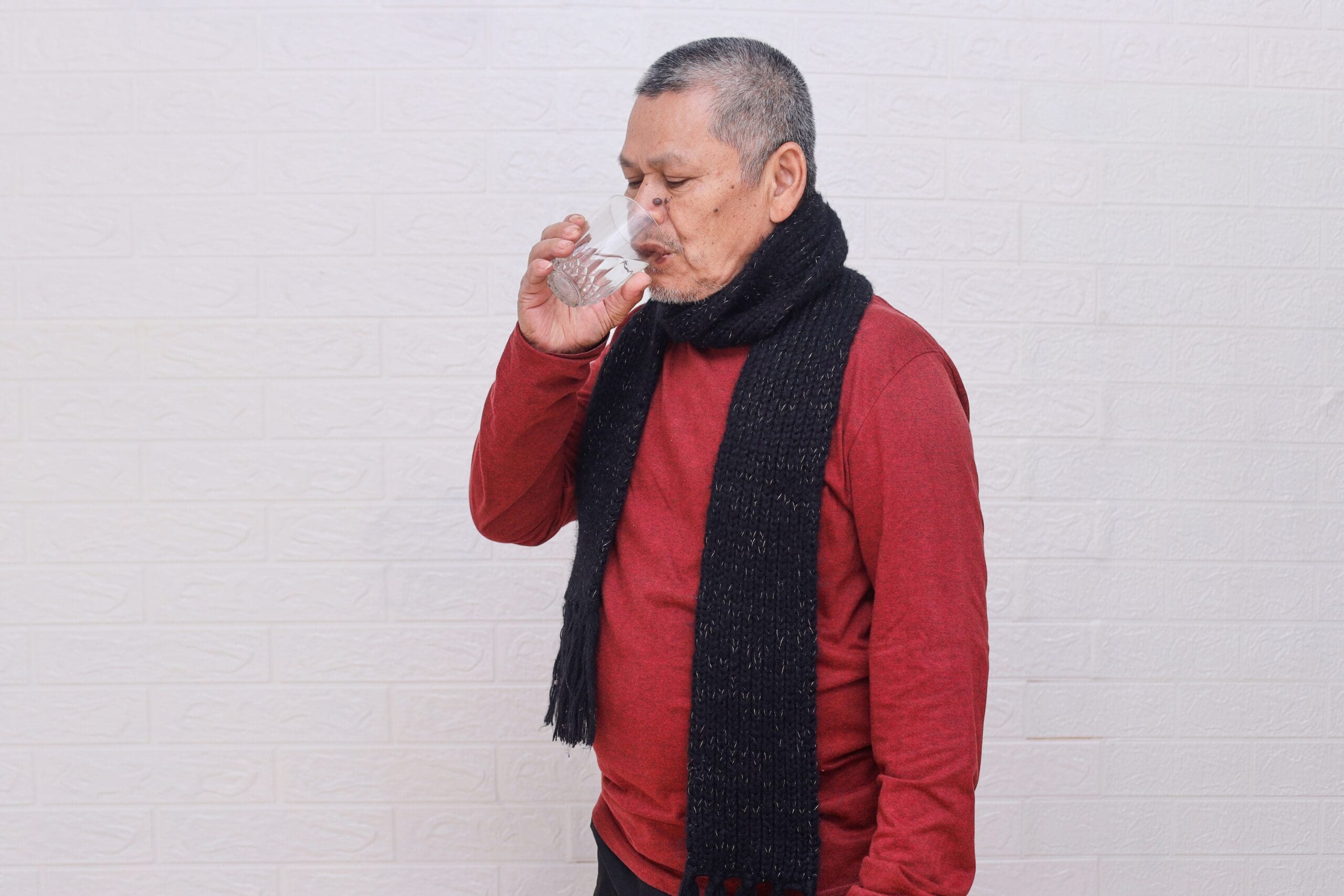Getting enough fluids is incredibly important for our health, and even more so the older we get. After all, our bodies are made up of mostly water, and our organs need water in order to function properly and remain healthy. It may seem so simple to drink water, but there are so many things that can cause us to lose fluids without even realising it. Here’s our top tips on how to prevent, detect and treat dehydration in older adults.
Dehydration can become far more serious than we might imagine, especially for the elderly. As we age, the body loses its ability to retain as much water, meaning older adults need to ensure they are re-hydrating more frequently. Again, the answer seems so simple – drink more water, but the older we get, we also begin to lose our sense of thirst! This means we may not realise that we’re becoming dehydrated, so by the time we reach the point we feel thirsty, we’re essentially already dehydrated.
How much water do we actually need?
There are many different opinions on how much water one should drink daily, but the NHS website recommends 6-8 glasses as best practice. However, this really depends on a number of factors such as how active you are, what climate you live in and your height and size.
We get about 20% of our water intake from our food, so the general rule of thumb is to aim for around two litres of water per day, topping that up when it’s hot or if we’re doing exercise. And as mentioned above, if you’re thirsty, this means you’re already dehydrated, so it’s important to get into the habit of drinking small amounts throughout the day to keep your fluid levels up.
Things to consider when looking for signs of dehydration
There are a number of different reasons why dehydration can be more common in the elderly, and it’s important to be aware of these so that you can spot the signs of dehydration early. In recognising these factors, you can be better equipped to prevent, detect and treat dehydration in older adults.
Medication
Medication is something to be mindful of when trying to prevent and detect and treat dehydration in older adults as certain medications can cause excess loss of fluids and electrolytes. This is why you may notice your doctor telling you to drink more water than usual when taking a course of antibiotics, for example. If you have older adults in your care taking daily prescription meds, extra fluid intake should become a natural part of their routine.
Incontinence
Older adults may start to experience incontinence issues, which can make them reluctant to drink fluids regularly in case they have an accident. This can be extremely harmful to the body, so it’s important for anyone experiencing these types of issues to speak with their GP for advice on how to control incontinence in a safe way.
Dementia
Older adults living with dementia may forget to carry out daily routines such as drinking water, so it’s important that those caring for people with dementia keep track of fluid intake and encourage it regularly. In advanced stages of Dementia, patients can sometimes develop dysphagia which is difficulty swallowing – making the basic act of drinking water incredibly painful. In these cases, providing fluids intravenously may be the best way to prevent dehydration.
What are the symptoms of dehydration?
It is important for carers, and the elderly themselves to be able to spot the signs of dehydration quickly in order to treat them, but many of the early signs of dehydration can easily be ignored or misdiagnosed.
Early signs of dehydration can include obvious symptoms such as thirst, and can also commonly present itself in headaches, dizziness, dry mouth, fatigue and lethargy, infrequent and dark urine. Most of these early signs of dehydration can be treated simply by immediately increasing fluid intake. The easiest way to know whether you’re hydrated enough is to check the colour of your urine. A light yellow or clear colour indicates hydration levels are all good.
However, more severe signs of dehydration may include diarrhea and vomiting, confusion, and blood in your stools. If you notice any of these symptoms in yourself or someone in your care, it is important to contact the GP immediately for medical intervention.
What fluids are best for hydration?
Water is undoubtedly the best option when replenishing fluids, however any drinks will contribute to your daily fluid levels. It is generally advised that caffeinated drinks such as coffee aren’t the best source for hydration because they can have a diuretic effect, but that’s not to say these drinks should be avoided altogether as part of a balanced diet.
Alcohol is also not recommended, especially in people who are already dehydrated as this will just make things worse. Older adults can also be very susceptible to Urinary Tract Infections, bladder and kidney problems, which can all be triggered by dehydration.
How to encourage more frequent fluid intake
Of course, the best way to prevent, detect and treat dehydration in older adults is to encourage more fluid intake. Hydration can often be something we forget about, but with some of the issues listed above, it’s imperative that older adults in care are encouraged to drink more in any way possible. Tips you can try include:
- Drinking small glasses of water throughout the day as this makes it more manageable
- Some elderly people may prefer/find it easier to drink through a straw
- Try offering a variety of decaffeinated soft drinks such as tea, fruit juice & low fat milk
- Include water-dense fruits such as watermelon in their diet
- Provide mobility support getting to the bathroom
- Address any concerns about incontinence
If you are someone caring for an elderly person and you’re concerned about dehydration, keep a log of fluid intake. You can also make note of bathroom trips, diet, mood and anything else that may be affected by their hydration levels.
Overall, water plays an amazing role in the healthy functioning of our bodies, from assisting the heart in efficiently pumping blood around our bodies, to flushing out toxins from our liver and other organs. Drinking water has a huge range of health benefits including giving you more energy, improving skin, weight loss and it can even reduce your risk of heart attack.
To find out more about how Nourish can help you track and monitor things such as fluid intake, book a demo today!






